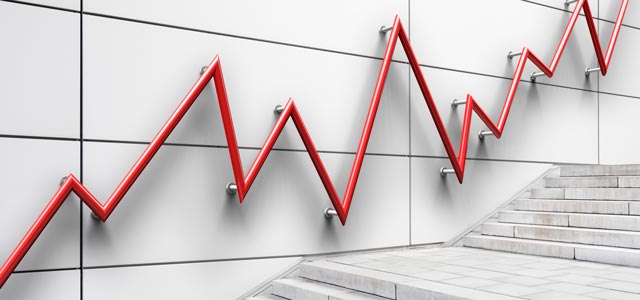Positive catalysts are in place in all three countries, and across emerging markets valuations and earnings expectations make for a potential rebound in 2019.
Such scary emerging market headlines. China and the U.S. are engaged in a grinding trade fight. Brazil elects a right-wing populist who declares he doesn’t know much about economics but, as a former army captain, vows to get violently tough on rampant crime. And now Mexico’s president-elect cancels a new $13.3 billion airport already under construction after it was voted down in a non-binding referendum organized by his own party and in which just a tiny fraction of eligible voters participated.
Throw in rising U.S. rates and it’s no wonder the MSCI Emerging Markets (EM) Index has sunk 25% from its January high through the end of October. But as we recently pointed out, deep declines in developing-country stocks are usually followed by rebounds and further advances. A look under the hood of these three countries reveals that for all the brakes on market performance there are also accelerators in each. More broadly, index-level earnings and valuation dynamics set up the asset class nicely.
Take Mexico, where incoming president Andres Manuel Lopez Obrador shook markets by saying he’ll respect the vote to scrap the airport project, undercutting the left-leaning, ex-Mexico City mayor’s conciliatory overtures to the business community. Markets are justifiably worried that governing by referenda would be a poor way to pursue needed infrastructure development and economic reforms, particularly the recent opening to foreign participation in the country’s long-closed and underdeveloped energy sector.
The knee-jerk market reaction was a selloff in local equities and the peso, which lost 3.5% against the dollar and contributed to a 5.3% loss in the MSCI Mexico Index. That sparked worries that the central bank will have to raise rates to counter currency-driven imported inflation, spurring investment banks to start trimming their economic growth forecasts.
On the flip side, that market reaction sent a clear message to team AMLO, as the president-elect is known: markets can help or hinder economic growth. Moreover, a few powerful coiled triggers are poised to catapult growth. The first is the early-October agreement revamping the North American Free Trade Agreement. A leading Mexican financial institution told Thornburg investment team members that private companies had frozen capex programs pending completion of the new United States-Mexico-Canada Agreement (USMCA). Now that it’s sealed, those investment budgets are back on the front burner.
The second trigger is federal funds left over from the out-going administration that will be immediately disbursed at the state-level via AMLO-appointees working in tandem with local officials. The idea is to minimize the traditional lags that incoming Mexican administrations have suffered with federal disbursements. The funds are already ear-marked for infrastructure, health and education projects.
Further south, Latin America’s largest economy is slowly emerging from its deepest recession on record. That, alongside Brazil’s convictions of scores of political and business elites for corruption, including now jailed former leftist president Luiz Inacio Lula da Silva, might explain how Jair Bolsonaro was just elected president in a landslide. The 63-year-old, long-time congressman and ex-paratrooper wasn’t implicated in the “Car Wash” probe, as the corruption investigation was labeled, facilitating his campaign as a “clean,” non-elite outsider, notwithstanding his offensive comments over the years about women, gays, minorities, not to mention one about favoring torture.
Yet starting in mid-September, when Bolsonaro was almost fatally stabbed at a campaign event, polling indicated that he started to pull ahead and Brazilian assets began rebounding. The MSCI Brazil Index climbed 16% by the end of October, more than reversing a much deeper loss as the currency component also kicked in. What did the market see in Bolsonaro?
Although Bolsonaro has said he knows little of economics, his chief economic advisor, Paulo Guedes, is a University of Chicago-trained economist, and they’re promising more open local markets, reduced bureaucracy and less government: Guedes is poised to oversee a merger of the finance, planning and industry and commerce ministries, giving him considerable authority over economic policy. Other ministry mergers are also planned.
Crucial pension reforms, privatizations and long-neglected infrastructure investments are front and center of the incoming administration’s agenda. And interestingly, the lead judge in the “Car Wash” investigation, Sergio Moro, has accepted Bolsonaro’s offer to become justice minister.
As for the world’s second-largest economy and one of the more poorly performing markets globally this year, no doubt the trade war is taking a heavy toll on local sentiment in China. Yet investors may be attributing too much impact from the trade disputes and too little from Beijing’s 2017 deleveraging campaign, which aimed to shrink the country’s shadow banking practices and tackle its heavy corporate debt load. Rates were aggressively hiked, the yuan sharply appreciated, and new bank loan growth ground to a halt, contributing heavily to this year’s economic slowing.
But just as policy can be quickly tightened when the Mandarins want to restrain the growth of debt and lower-return investments, it can also be quickly loosened, though the effects will likewise be seen with a lag. Hence, certainly in response to the adverse effects of the trade conflict, over the summer Beijing started cutting policy rates, depreciating the yuan—cushioning the impact of U.S. tariffs—and lowering banks’ required reserve ratios, and have also been reducing taxes. Don’t be surprised if Chinese stocks find their footing and start climbing again in 2019.
Valuations in all three countries’ stock markets, and for that matter, across emerging markets more generally, remain compelling. That’s particularly true given still solid MSCI EM Index-level earnings, as the graphic below makes clear. Thornburg Portfolio Manager Charlie Wilson points out that earnings expectations overshot in the first quarter of this year and have since slid too much. For bottom-up stock pickers, “it’s a good time to selectively shop for quality, free cash flow-generative stocks that have been swept lower in broad market downdrafts off news headlines,” he points out.
Elevated Earnings Expectations at an Attractive Price
Source: Bloomberg
Since its inception at the beginning of 1988 through the end of October, the MSCI Emerging Markets Index has returned an annualized 9.8%, right in line with the MSCI USA Index and handily outperforming the 7.1% and 5% annual returns in the MSCI All Country World and EAFE Indices, respectively. This year follows two in which cumulative returns amounted to nearly 50%, so 2018’s breather shouldn’t come as much of a surprise. More importantly, for investors with a long horizon and willing to buckle up, it’s been a bumpy but profitable ride.












